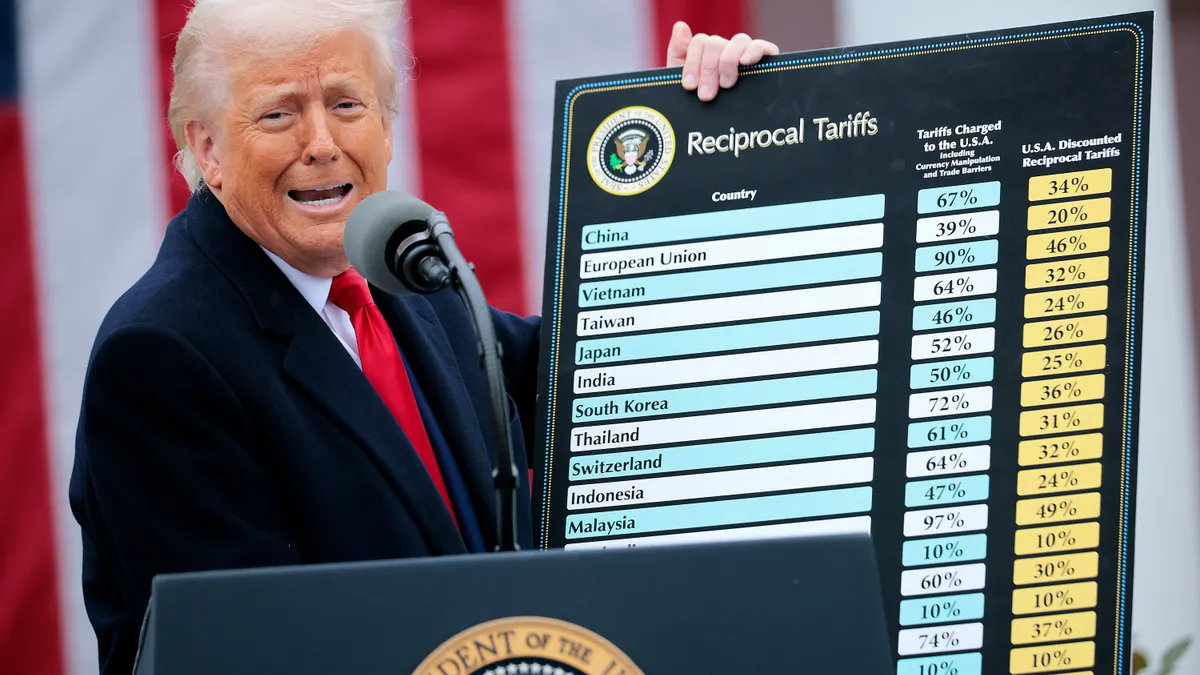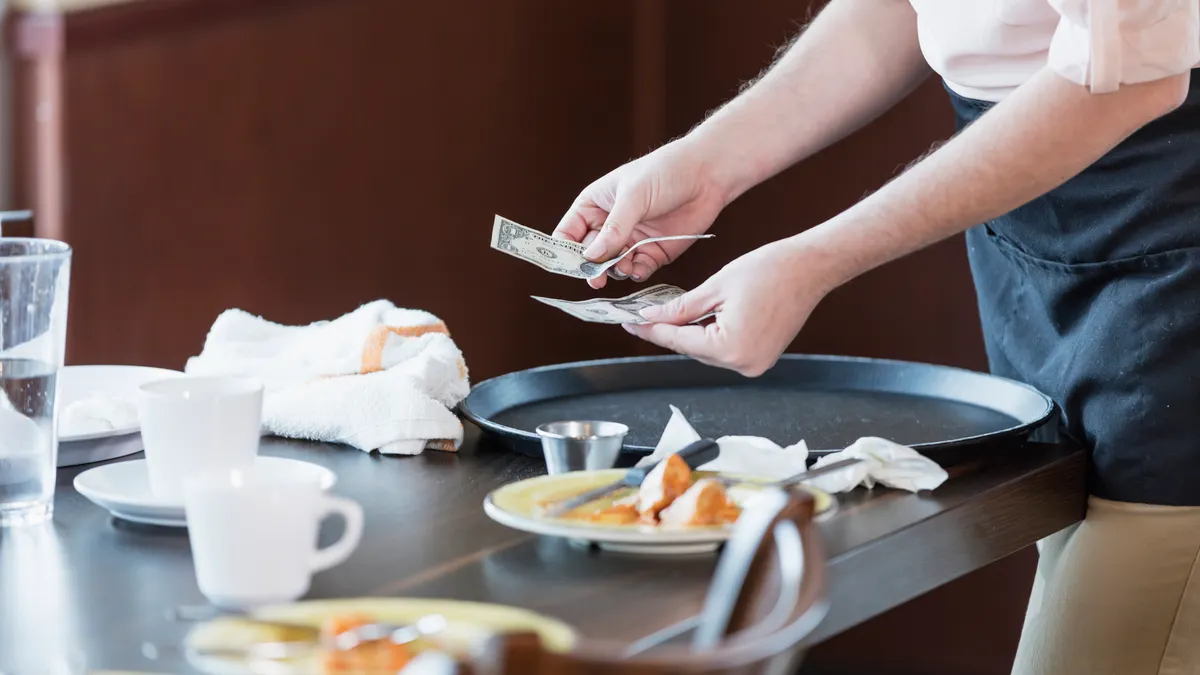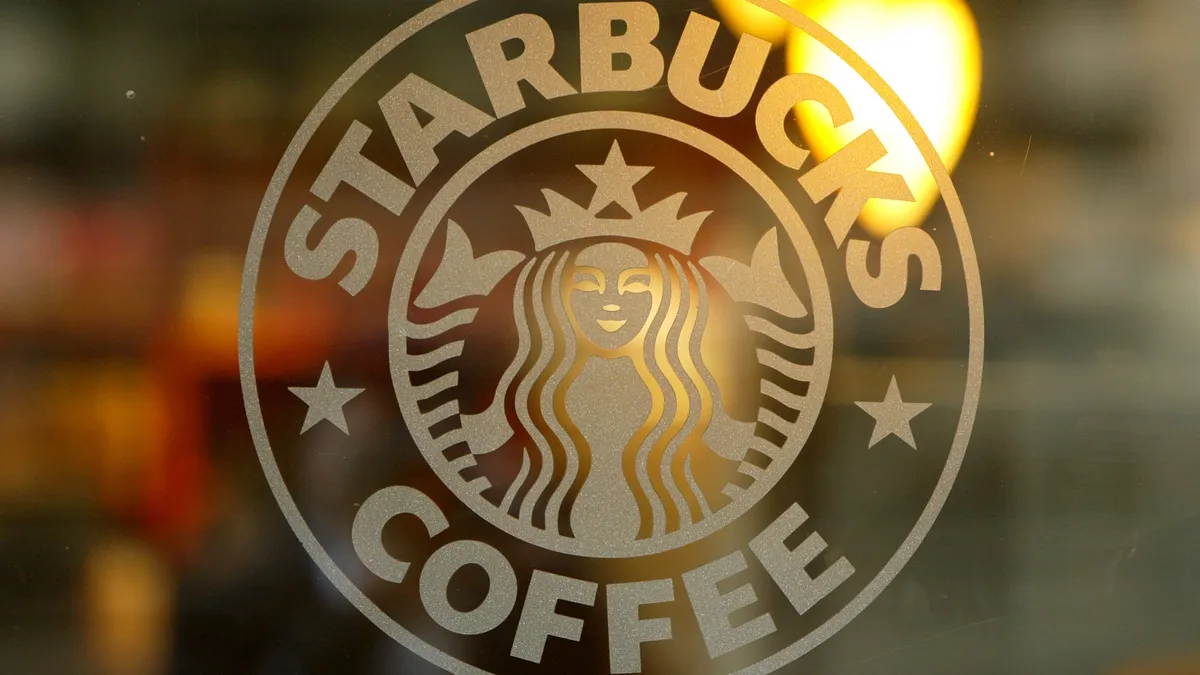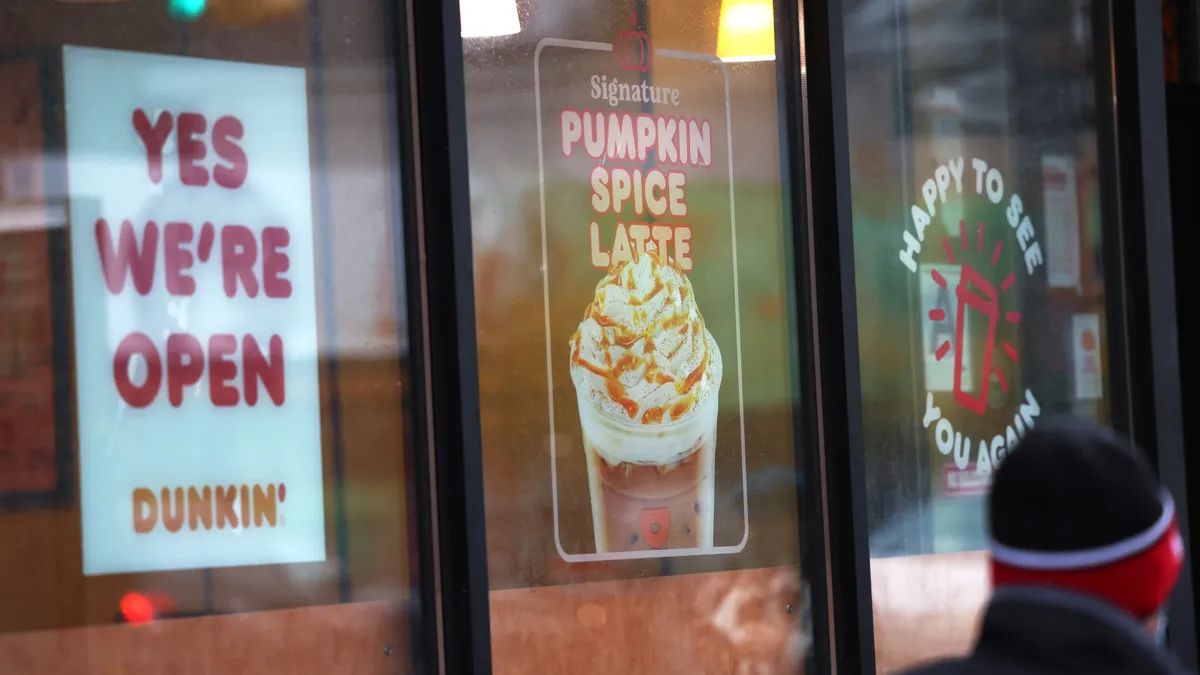The tariff rollercoaster continues to roil marketplaces. On Wednesday, a federal court blocked many of President Donald Trump’s executive orders regarding tariffs — only for the ruling to be paused by an order from the U.S. Court of Appeals for the Federal Circuit. For now, restaurants still face the impacts of 10% global tariffs, reciprocal tariffs and specific levies on goods from Canada, China and Mexico.
Tariffs could have a moderate impact on costs for many restaurant companies, especially related to equipment and buildout costs — though the severity remains to be seen. Tariffs remain in place on steel, aluminum and derivative products, also. The threat of tariffs is one reason why Fitch changed its industry outlook from neutral to deteriorating earlier this month, and a wide range of restaurant companies announced responses to the trade changes before Wednesday’s back and forth.
Many chains like Cava and Sweetgreen said they source much of their food domestically and expect a minimal impact, while other brands have been working with suppliers to ensure minimal disruption or cost exposure.
Check out below what many chains said during their April and May earnings calls about the potential impact tariffs could have on their supply chains, and what they are working to mitigate costs.
Bloomin’ Brands
Bloomin’s CFO and Executive Vice President Michael Healy said he predicts a potential impact between 20 and 40 basis points to restaurant-level margins, largely in the second half of the year if tariffs are implemented.
“We are working directly with all of our suppliers to mitigate the impact, build inventory, and shift sourcing locations,” he said during an earnings call.
Brinker International
Over 80% of Brinker’s supply chain basket is sourced domestically, and at least one-third of what is left comes from Mexico and Canada, CFO Mika Ware said during an earnings call. Ware said the company has flexibility in its supply chain to source from different countries to control costs.
“When we have quantified the impact, we have over $1 billion of food and beverage costs,” Ware said. “It's relatively small to the whole spend that we have in that bucket. We do think with our current pricing strategy that we can absorb any tariffs that come our way really just within the current strategy that we have.”
The company will continue to lean into its opening price points to maintain its value perception with guests.
Cava
Cava expects a minimal impact from tariffs given its current supply chain. A majority of its ingredients are locally sourced and covered under current contracts, Cava CFO Tricia Tolivar said during an earnings call, adding that it has already moved to minimize the overall impact.
Tolivar previously told Restaurant Dive that its food basket consists of 25% protein, 25% produce, 25% grocery and 25% everything else, and it has yet to see any impact of cost-of-good-sold from the first rounds of tariffs.
Chipotle
The fast casual chain expects cost of sales to be in the high 29% range, stating the benefit from its Chipotle Honey Chicken LTO will be more than offset by higher inflation and normalization of avocado prices and tariffs. This prediction includes impacts by tariffs on aluminum and the broad-based 10% tariff, CFO Adam Rymer said during the company’s earnings call.
Tariffs could have an impact of roughly 50 basis points, he said. With inventory on hand, the Q2 impact would be 20 basis points. However, these estimates didn’t include postponed tariffs or the 25% tariff on Mexico and Canada since “our imports fall under the USMCA exception,” which exempts many Canadian and Mexican goods from tariffs.
Items of particular note include beef, some of which is sourced from Australia, as well as items sourced from Vietnam, Indonesia and Thailand. There would also be an impact on avocados from Colombia and Peru, Rymer said.
Rymer added that the impact of tariffs on new builds is “a little bit in flux,” but could impact new stores’ returns and capital expenses in the mid-single-digit range by increasing the cost of things like lumber and shelving, he said.
“Most of the equipment that we use here in the U.S. is manufactured in the U.S.,” CEO Scott Boatwright said. “Component parts are the things that will be subject to tariffs as those things come from other countries, as you can imagine. So we really don't understand the full impact today.”
The chain, which has over 3,700 units, has been particularly bullish on development the past few years as it works toward its goal of 7,000 units. It plans to add another 315 to 345 units this year, according to an earnings release.
Domino’s
Domino’s doesn’t expect to see a material impact on its operating profit from tariffs since much of its food products are sourced within the country, CFO Sandeep Reddy said during an earnings call. He added that even with 175 stores expected to open this year, there will not be a material impact on costs.
“The enthusiasm that the franchisees have to continue to grow the stores is very strong and we are very supportive of what we need to do to make sure that we harness this growth,” Reddy said.
Noodles & Company
The fast casual chain expects a minimal impact, but widened the lower end of its restaurant contribution margin by 50 basis points to account for the projected impact, Noodles & Company CFO Michael Hynes said during an earnings call. Its guidance for restaurant contribution margins is between 12% to 14%.
“Due to most of our product being sourced from the U.S., and over 50% of our food purchases for the remainder of 2025 being secured through fixed-rate agreements, we believe our 2025 tariff exposure is limited and primarily relates to some of our produce items sourced from Central America and shrimp that's sourced from Asia,” he said.
Potbelly
Potbelly has been monitoring tariffs on a daily basis, working with its distributors to prepare for potential impacts to the business, CEO Bob Wright said during an earnings call.
“We, again, don't have a lot of exposure to those things that are going to be potentially tariff[ed] hard on the food side,” Wright said. “We feel like the back half is going to be a little bit different than the front half, but nothing at least that we can foresee given the current tariff climate that's really going to take us off our full year mark.”
Restaurant Brands International
A vast majority of RBI’s cost of goods sold is localized, and it is working with suppliers and franchisees to localize inputs that are not, RBI’s CFO Sami Siddiqui said during an earnings call.
“Based on what we know today, if our efforts pan out, we will see a COGS impact of around 100 basis points or less in most cases, across our home market franchised businesses and our company-owned restaurants,” he said. “This is a point-in-time estimate and we'll continue to reassess as needed.”
Starbucks
The coffee chain brought together a cross-functional team to manage and mitigate tariff risks wherever possible, Starbucks CFO Cathy Smith said during an earnings call. Outside of coffee, the brand’s largest tariff exposure is merchandise from China and some imported beverage components.
“For these impacted areas, we are actively working on strengthening our supply chain, including localizing and moving production as needed,” Smith said. As an example, Smith said the chain was shifting some of the production for holiday products to alternate sites.
The company sources arabica coffee from 28 countries, with a bulk of its supply coming from Latin America, she said. Its coffee team is working to leverage its global footprint to “further diversify and redirect coffee shipments as appropriate,” Smith added.
Sweetgreen
Sweetgreen expects its exposure to tariffs to increase costs by 75 basis points during the second quarter, CFO Mitch Reback said during an earnings call. Potential impacts include its costs in its supply chain, restaurant buildouts and its automated Infinite Kitchen, he said.
Supply chain exposure is “relatively contained,” he said, adding that most ingredients are sourced domestically.
“As we plan for the build out of our 2025 real estate pipeline, we anticipate tariffs will have an approximate 10% impact on our $1.4 million to $1.5 million per unit build out costs,” he said. “Importantly, this impact is not expected until late in 2025 as we have pre-purchased a number of key components. Our team continues to diversify our supply base, avoid cost pass throughs and is focused on securing multi-year pricing agreements.”
The chain expects the automated makeline to continue to outperform expectations despite any additional costs. These machines currently cost about $450,000 to $550,000 per unit. About 15% of each unit cost comes from Chinese-manufactured components, he said. So far Sweetgreen has 10 Infinite Kitchens on hand that have not been impacted by tariffs.
“While the current tariff rate on Chinese goods will impact the Infinite Kitchen, it remains accretive to our return on capital due to the long-term labor savings, consistency and improvements in throughput,” Reback said of tariffs in place in early May. “We remain committed to the expansion of the Infinite Kitchen and reiterate our 2025 new unit and IK guidance.”
The company expects to open roughly 40 units this year, of which half will include an Infinite Kitchen, CEO Jonathan Neman said.
Yum Brands
The company expects minimal impact to its supply chain as most of its markets and brands source within their country or within countries with minimal tariff risk, Yum CFO Chris Turner said during an earnings call.
“We expect tariffs to have an immaterial impact on our system-wide supply chain,” Turner said. “Our global scale offers our system advantages to drive supply chain efficiencies and our expert teams are partnering with suppliers and franchisees on the limited items where there is potential impact.”






















